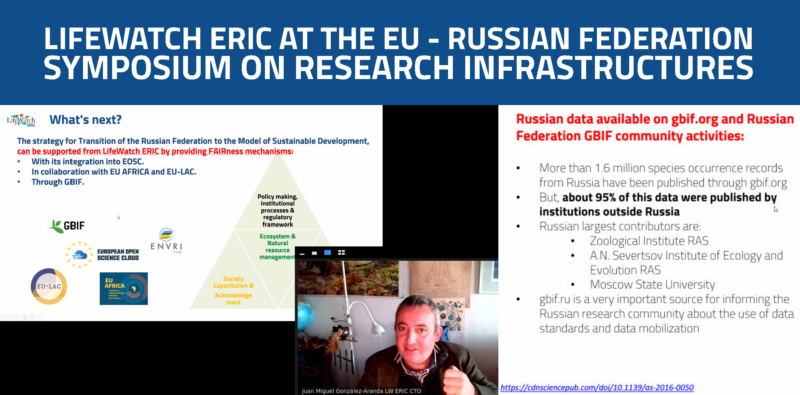
On Friday, 17 December, LifeWatch ERIC CTO Juan Miguel González-Aranda gave a presentation at the EU – Russian Federation Symposium on Research Infrastructures (RIs). The virtual symposium brought together delegates from Russian and European RIs, active in various scientific domains, to raise awareness of the broad array of scientific opportunities offered to scientists and for RI cooperation in Europe and in the Russian Federation.
In his presentation, “Fostering EU-Russian Federation e-Biodiversity and Ecosystem Research, Sustainable Services provision and Conservation Mechanisms, Together” which he gave on behalf of the LifeWatch ERIC Executive Board, Dr González-Aranda suggested reinforcing existing communities-of-practice between the blocs, as well as creating an “essential e-Research Collaboration middleware” to enhance their interoperability. He also spoke about the wealth of Russian biodiversity data already available on the GBIF, and how LifeWatch ERIC can support the strategy for Transition of the Russian Federation to the Model of Sustainability Development through the provision of FAIRness mechanisms, such as integration into the EOSC.
You can see the full agenda of the event here.
CREMLINplus (Connecting Russian and European Measures for Large-scale Research Infrastructures – plus) is an EU Horizon 2020 project fostering European-Russian scientific and technical collaboration in the field of research infrastructures (RIs).
RI-VIS project is an EU Horizon 2020 project designed to increase the visibility of European research infrastructures (RIs) to new communities in Europe and beyond.